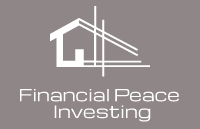As I kicked off my engineering career in my early twenties, “Rich Dad Poor Dad” became a game-changer in shaping my financial mindset. Just before diving into my first job, this book opened my eyes to the world of personal financial education. In this book, Robert Kiyosaki contrasts the money philosophies of two father figures in his life: his own dad referred to as “Poor Dad,” and the father of his childhood friend, known as “Rich Dad.” I’m grateful for stumbling upon this crucial life lesson at the start of my professional journey, especially since financial education wasn’t something I grew up with in my family. I revisited this book recently, sharing its wisdom with my 12-year-old son. It dawned on me that I was passing on the knowledge I gained from the book—knowledge I’ve applied and tested in my own life—to cultivate a thoughtful perspective in a young mind. Here are key takeaways that I believe can benefit anyone seeking effective financial management and investing.
- Assets vs. Liabilities:
- Instead of spending money on luxury items that don’t generate income, follow Rich Dad’s advice: “Rich people acquire assets. The poor and middle class acquire liabilities that they think are assets.” Consider purchasing income-generating assets like rental properties or dividend-paying stocks.
- Financial Education:
- As Rich Dad emphasizes, “The most life-changing knowledge is not taught in school.” Take proactive steps to educate yourself. Attend financial literacy workshops or read books on investing and money management. As Kiyosaki writes, “The more you learn, the more you earn.”
- Entrepreneurship:
- In the words of Rich Dad, “The problem with having a job is that it gets in the way of getting rich.” Explore entrepreneurial opportunities, as Rich Dad advises, “Mind your own business” and consider starting a small business or side hustle.
- Investing:
- Kiyosaki suggests, “Invest first in education.” Allocate resources to learn about different investment vehicles. As Rich Dad says, “In today’s fast-changing world, it’s not so much what you know anymore that counts, because often what you know is old. It is how fast you learn.”
- Work to Learn, Not for Money:
- Instead of focusing solely on a high salary, consider Rich Dad’s perspective: “Don’t work for money; make money work for you.” Look for jobs that offer valuable skills and knowledge, even if the initial financial compensation is lower.
- Take Calculated Risks:
- Rich Dad advises, “You’ll often have to make [investment] decisions quickly. So it’s important to know what you’re doing.” Before making an investment, thoroughly research and understand the risks involved.
- Financial Independence:
- Follow Rich Dad’s advice: “The philosophy of the rich and the poor is this: the rich invest their money and spend what is left. The poor spend their money and invest what is left.” Create a budget that prioritizes savings and investment, working towards financial independence.
- Importance of Building Assets:
- In line with Rich Dad’s philosophy, “Building something from nothing satisfies the soul.” Instead of solely relying on a salary, consider building a portfolio of income-generating assets, such as a small business or real estate.
- Learn from Mistakes:
- Rich Dad’s perspective on mistakes is clear: “Losers quit when they fail. Winners fail until they succeed.” If you encounter financial setbacks, analyze the situation, learn from your mistakes, and use the experience to grow and improve your financial strategies.
While recognizing that the teachings of Rich Dad Poor Dad are subjective and may not resonate with everyone, I personally endorse the idea of prioritizing investment in one’s knowledge. I believe in the importance of being a lifelong learner to acquire the necessary understanding of investment. At Financial Peace Investing, we advocate for investors to be well-equipped as responsible managers, or more precisely, stewards of the resources entrusted to them. The aim is to steadily build assets that generate passive income, allowing our most valuable asset, time, to be directed towards the most crucial tasks in life.



